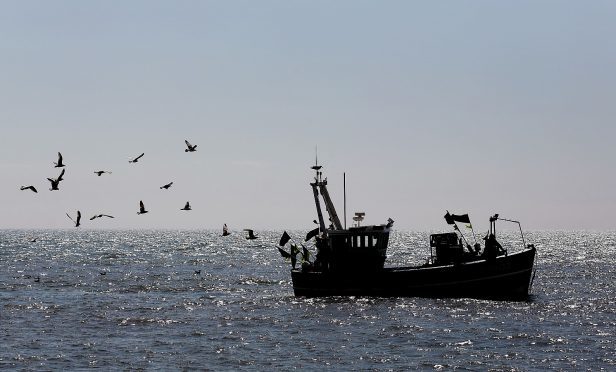With today being Friday the 13th, we’re reminded that superstitions are funny old things.
For non-believers, superstitions can easily be dismissed as old wives’ tales, with no foundation in the world of science and reason.
But out at sea, where the weather can be unpredictable and where periods of good catches seem to be guided by nothing more than “luck,” many fishermen and women are happy to observe a few superstitions passed down through generations.
With the final day of Seafood Week 2017 landing on Friday 13th, we cast the net far and wide to examine some of the superstitions still alive in the industry…
SEA FARING SUPERSTITIONS
- WHISTLING ON BOARD
Whistling is said to challenge the wind out at sea, bringing on strong gales and causing treacherous conditions for crew.
But it is more likely that this superstition was created in the British Royal Navy, where idle whistling was forbidden in case it caused confusion with Boatswain’s (or Bosun’s) Call, a naval instrument that whistled orders to the crew.
Different whistling tunes could confuse instructions to those on board, such as calling them to gather for meeting or to halt work on deck.
Equally, with modern lifejackets often having whistles to attract attention, a jolly tune on board could still cost lives of those lost overboard. Whatever its origins, this superstition is still alive in the fishing industry today.
- RENAMING YOUR BOAT
Legend has it that the name of every single vessel is recorded in the Ledger of the Deep and is known personally to Poseidon, or Neptune, God of the sea. Changing a boat’s name without consulting the Gods is said to invoke their wrath. Even if they don’t consider themselves to be particularly superstitious, most would still never dare change their boat’s name.
For those who are desperate to rename their boat – who ironically could be looking to change for superstitious reasons – a renaming ceremony must be carried out to inform the gods, which includes making a sacrifice of Champagne or rum to the sea.
This is so ingrained in our culture that we see it echoed in official christenings of ships, with royals and statesmen breaking Champagne or whisky bottles on the hull of a newly named vessel to invite good luck.
A bottle that doesn’t break, however, is said to anger the gods and will only bring bad luck.
- BANANAS ON BOARD
In Georgian times, fishermen would have been horrified at the sight of a banana aboard their boats.
The superstition dates back to the 1700s, when most ships carrying cargoes of bananas vanished at sea. It’s never been discovered exactly why these disappearances occurred, but there are a few theories.
One explanation is that the cargo of bananas confined in the ships’ cabins fermented quickly and released toxic gases, killing its crewmen.
Another theory suggests that poisonous spiders would be living in the bunches of fruit and that sailors died from their bites.
Fishermen especially say bananas are bad news, and that those transporting the fruit would never reel in a catch. However, this is less a case of superstition and is simply due to the fact that as bananas spoil so quickly, those transporting them have no time for fishing.
- FLOWERS ON BOARD ARE BACK LUCK
Historically, fishing crews would have been all male, and so the absence of flowers on board a fishing boat hardly seems odd.
But the absence of flowers on board a fishing boat is actually a considered move. Flowers are traditionally associated with either weddings or funerals and, in dangerous rough seas, are seen as tempting fate.
- A CHICKEN OR PIG WILL PREVENT YOU FROM DROWNING
Many fishermen down the ages had a chicken tattooed on one foot and a pig on the other, in the belief that these tattoos would protect the fisherman should their ship get into trouble.
This might have originated from the once commonly believed myth that neither pigs nor chickens could swim, and that God might therefore see the animals in the water and take pity on them.
Another theory comes from the fact that pigs and chickens were often the sole survivors of capsized ships. As chickens and pigs were usually held in wooden crates, when ships went down, the crates would float and be washed ashore.
So now that the fish myths have been debunked, there’s nothing to stop you enjoying fish this Friday 13th. And if you need some inspiration visit www.seafoodweek.co.uk where there’s a whole host of free recipes to choose from – what are you waiting for?
